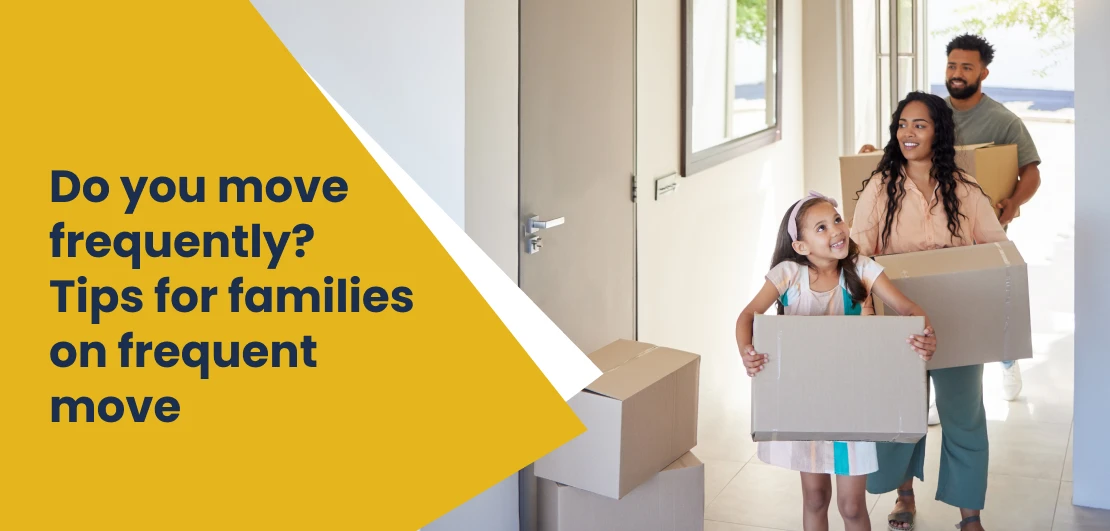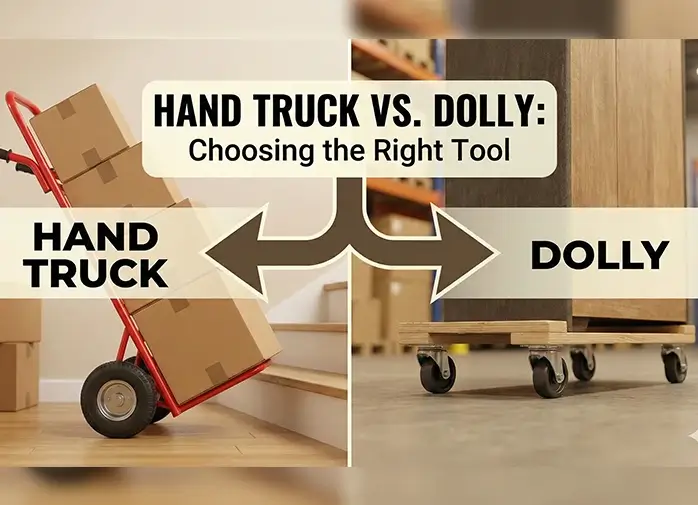Do You Move Frequently? Tips for Families on Frequent Moves

Moving once is stressful — but moving every year or every few years can feel overwhelming for families. Whether your moves are due to work, military assignments, lifestyle choices, or simply a love for new places, frequent relocation comes with unique challenges. The good news? With the right planning and systems in place, your family can transition smoothly every time.
This guide shares practical, family-friendly tips to help you stay organized, emotionally prepared, and financially smart through frequent moves.
Why Families Move Frequently?
Before diving into the tips, it helps to understand why frequent moves happen:
- Job transfers or promotions
- Military orders
- Better housing opportunities
- Educational reasons
- Lifestyle and adventure seekers
No matter the reason, the goal is to create a routine that makes every move manageable.
1. Create a Family Moving Routine
Turn moving into a predictable system rather than a chaotic task.
Why It Helps
Children and adults adapt better when they know what to expect.
How to Do It
- Create a step-by-step moving checklist.
- Assign roles to each family member.
- Follow the same packing order each time (e.g., storage areas → bedrooms → kitchen).
- Keep a shared digital moving file for documents, receipts, and inventory.
2. Maintain a “Move-Ready” Home
People who move often benefit from keeping their home organized year-round.
How to Do It
- Avoid clutter by adopting a “one in, one out” rule.
- Keep documents centralized in one binder.
- Use clear, stackable bins instead of random boxes.
- Store seasonal décor, tools, or kid’s toys in labeled containers.
This reduces packing time dramatically in every move.
3. Simplify With Minimalism
Frequent movers know one truth: the less you own, the easier and cheaper every move becomes.
Tips
- Declutter every 3–6 months.
- Donate or sell items you haven’t used in a year.
- Keep furniture lightweight, modular, or easy to disassemble.
- Digitize paperwork, photos, and kids’ artwork.
Minimalism isn’t about living with nothing — it’s about keeping only what matters.
4. Build a Moving Budget (and Expect Surprise Costs)
Each move comes with unexpected expenses — deposits, cleaning, packing supplies, travel costs, etc.
How to Stay Prepared
- Set aside a “moving emergency fund.”
- Track costs from previous moves to estimate future ones.
- Compare full-service movers, moving containers, and DIY rentals.
- Don’t forget expenses like pet boarding, childcare, or storage.
Having a clear budget reduces stress during transitions.
5. Keep an Essential “First Week” Box
This is a must-have for frequent movers.
What to Include
- Kids’ favorite toys and comfort items
- Clothing for 3–5 days
- Toiletries
- Bed linens and one set of towels
- Snacks and basic cookware
- Medication and first-aid kit
- Important documents
Label it clearly: “Open First.”
6. Help Kids Adapt Emotionally
Frequent moves can be tough on children, but supportive communication makes a huge difference.
Helpful Tips
- Talk openly about the move well in advance.
- Let kids be involved — picking room colors, helping pack toys, choosing a park to visit.
- Keep routines stable: bedtime, family meals, weekly rituals.
- Schedule video calls with old friends and relatives.
Consistency and reassurance help kids adjust faster.
7. Keep School and Medical Records Ready
Families who move often need quick access to personal records.
Create a Mobile Records System
- Store digital copies of school transcripts, vaccination records, and medical information.
- Keep physical documents in a waterproof folder.
- Notify schools ahead of time when planning a relocation.
- Request referrals from doctors or specialists if needed.
Having records ready saves time when enrolling in new schools or clinics.
8. Establish a Support Network in Each New City
Connections make every transition easier.
Ways to Build Your Network Fast
- Join community groups, parenting clubs, or sports teams.
- Attend local events like farmers markets or school activities.
- Connect with neighbors early — even if you don’t plan to stay long.
- Use social media groups for local tips and recommendations.
A strong support system improves emotional well-being for the whole family.
9. Choose Family-Friendly Moving Services
Frequent movers eventually learn that doing everything alone is exhausting.
What to Look For
- Reliable long-distance movers
- Specialty movers (piano, hot tub, furniture)
- Packing and unpacking services
- Temporary or long-term storage
- Vehicle shipping
Building a relationship with a trusted moving company can save money and stress on each move.
10. Settle Quickly With a “New Home Setup Routine”
The faster your new home feels like home, the smoother your transition.
Tips
- Unpack essentials first: beds, kitchen items, bathroom supplies.
- Set up kids’ rooms early for comfort.
- Walk through the new neighborhood within the first week.
- Create a schedule — grocery shopping, school visits, utility setup, etc.
A quick setup helps the family settle emotionally and practically.
11. Keep Memories Alive
Moving frequently doesn’t mean forgetting your past.
Ideas
- Create a digital memory book for each home.
- Keep a travel-style scrapbook for kids.
- Frame photos from different cities.
- Collect one small souvenir from every place you live.
This helps your family maintain continuity despite constant changes.
12. Build Flexibility and a Positive Mindset
Frequent moves can be stressful, but they also offer growth and adventure.
Mindset Tips
- Focus on the opportunities, not the challenges.
- Treat each city as a chance to learn something new.
- Encourage kids to stay curious and open-minded.
- Celebrate moving milestones as a family.
Flexibility makes transitions smoother and more rewarding.
Conclusion
Frequent moving doesn’t have to be chaotic. With the right strategies — from creating predictable routines to minimizing clutter, budgeting wisely, helping kids adapt, and staying organized — your family can thrive no matter how often you relocate. Each move becomes an opportunity to grow, explore new places, and build unforgettable memories.
If you want the packing to be easier and the moving process stress-free, consider partnering with professional movers who understand the needs of frequently relocating families.
FAQs
1. How often is “too often” for families to move?
There’s no universal rule, but moving every year or more can be challenging, especially for school-age children. Proper planning helps minimize disruptions.
2. How can we help kids adjust to new schools after moving?
Visit the school beforehand, meet teachers early, maintain routines, and encourage your child to join clubs or activities to make friends.
3. Are professional movers worth it for frequent moves?
Yes — frequent movers save time, reduce physical stress, and avoid hidden costs by using reliable professionals.
4. How do we stay organized with multiple moves?
Use digital checklists, maintain a moving binder, label bins clearly, and keep essential documents accessible at all times.
5. How do we emotionally cope with frequent moves?
Stay connected with old friends, maintain strong family routines, talk openly about feelings, and focus on the opportunities in each new location.
Categories
- Long Distance Moving154
- Local Moving120
- Commercial Moving40
- Residential Moving34
- Last – Minute Moving25
- Moving Tips & Lifestyle10
- Furniture Moving9
- Moving Tips & How-To Guides8
- Moving services7
- Moving Cost5
- Moving Cost Calculator5
- Moving Costs & Budgeting5
- moving tips4
- Moving companies4
- state to state movers4
- Moving Tips4
- Piano Moving3
- Car Transportation3
- Truck Rental3
- Local Move3
- best moving rates3
- cheap moving companies3
- affordable moving companies3
- full-service movers3
- Moving3
- Moving Cost Guides3
- Moving Tips & Planning3
- Junk Removal2
- Moving Container2
- Senior Moving2
- Senior Relocation Moving Companies2
- Moving Tools2
- Moving Estimates2
- interstate moving2
- College Moving2
- Dorm Moving2
- Tips for moving2
- cross-country move2
- International moving2
- Household moving2
- Long-Distance Moving2
- Relocation Guide2
- Moving Tips & State Guides2
- Heavy Equipment1
- Senior Moving Services1
- office moving1
- office relocation1
- employee relocation1
- Car Transport1
- Vehicle Shipping1
- Car Shipping Services1
- Artificial Intelligence1
- Office Moving Services1
- Commercial Moving Companies1
- Corporate Moving Services1
- Corporate Movers1
- full-service moving companies1
- sustainable moving companies1
- green movers1
- Moving in US1
- Best places to move in 20251
- 2025 moving1
- Full-Service Moving Companies1
- College moving services1
- Moving to College1
- Moving Season1
- Spring Moving1
- donate1
- sell1
- Movers in California1
- Movers in Studio City1
- Moving to California1
- Laws about Moving into California1
- Moving Laws1
- House moving1
- packing1
- cheap moving ways1
- Moving guide1
- moving across countries1
- international relocation program1
- move out cleaning1
- right packing supplies1
- pack while moving1
- Apartment moving1
- PODS1
- moving out1
- state to state move1
- California movers1
- Truck Rental1
- US Territory Relocation1
- International Moving1
- Shipping & Moving Tips1
- Moving Budget Guide1
- Relocation Guides & Incentives1
- Moving Tools & Equipment Guides1
- Moving Services & Options1
- Moving Tips & How-To Guides1
- Moving Day & Settling In1
- Mobile Home Moving1
- Moving Guide & Tips1
- Moving Tips & State Comparisons1
- Moving Tips & City Guides1
- Moving Tips & Cost Guides1
- Long-Distance Moving Tips1
- Moving Tips & Financial Planning1
- Moving Tips & Home Preparation1
- Vehicle Shipping & Auto Transport1
- Marketing & Lead Generation1
- International Moving Guides1
- Moving Costs1
- San Francisco Moving Guide1
- NYC Moving1
- Local Movers1
- Budget Moving1
- Student Moving1
- Affordable Moving1
- Specialty Moving Guides1
- Local & Long-Distance Moving1
- Boston Moving Guide1
- Europe Relocation Guide1
- Moving Costs & Specialty Moving1
- Cost of Living1
- Relocation1
- International Moving1
- Moving Guides1
- Lifestyle & Relocation1
- State Guides1
- Home Buying Guide1
- Moving Timeline1
- Real Estate Tips1
- Appliance Moving1
- Packing & Preparation1
- Interstate Relocation1
- City-to-City Moving Guide1
- Technology for Movers1
- Moving Reviews1
- Moving Costs & Storage1
- Moving Tips & Equipment Guides1
- Moving Guides & Cost Insights1
- Moving Supplies1
- Packing Tips1
- Home Moving1
Archives
Recent posts
-
.webp)
Plastic Wrap for Moving: The Ultimate Guide to Protecting Your Belongings
February 2026 -

What Is an Interstate Move? Everything You Need to Know Before Moving Across State Lines
February 2026 -

North American Van Lines Reviews: Is It Worth the Cost in 2026?
February 2026 -

Hand Truck vs Dolly: Which One Is Better for Moving and Heavy Lifting?
January 2026

 Local Movers
Local Movers Last-Minute Movers
Last-Minute Movers Junk Removal
Junk Removal Long Distance Movers
Long Distance Movers Piano Movers
Piano Movers Heavy Equipment
Heavy Equipment Commercial Movers
Commercial Movers Moving Container
Moving Container Car Transportation
Car Transportation Furniture Movers
Furniture Movers Truck Rental
Truck Rental Moving Cost Calculator
Moving Cost Calculator Moving Planner
Moving Planner Packing Calculator
Packing Calculator Moving Checklist
Moving Checklist Moving Insurance
Moving Insurance FAQ
FAQ Contact Us
Contact Us Moving Loan
Moving Loan About Us
About Us







